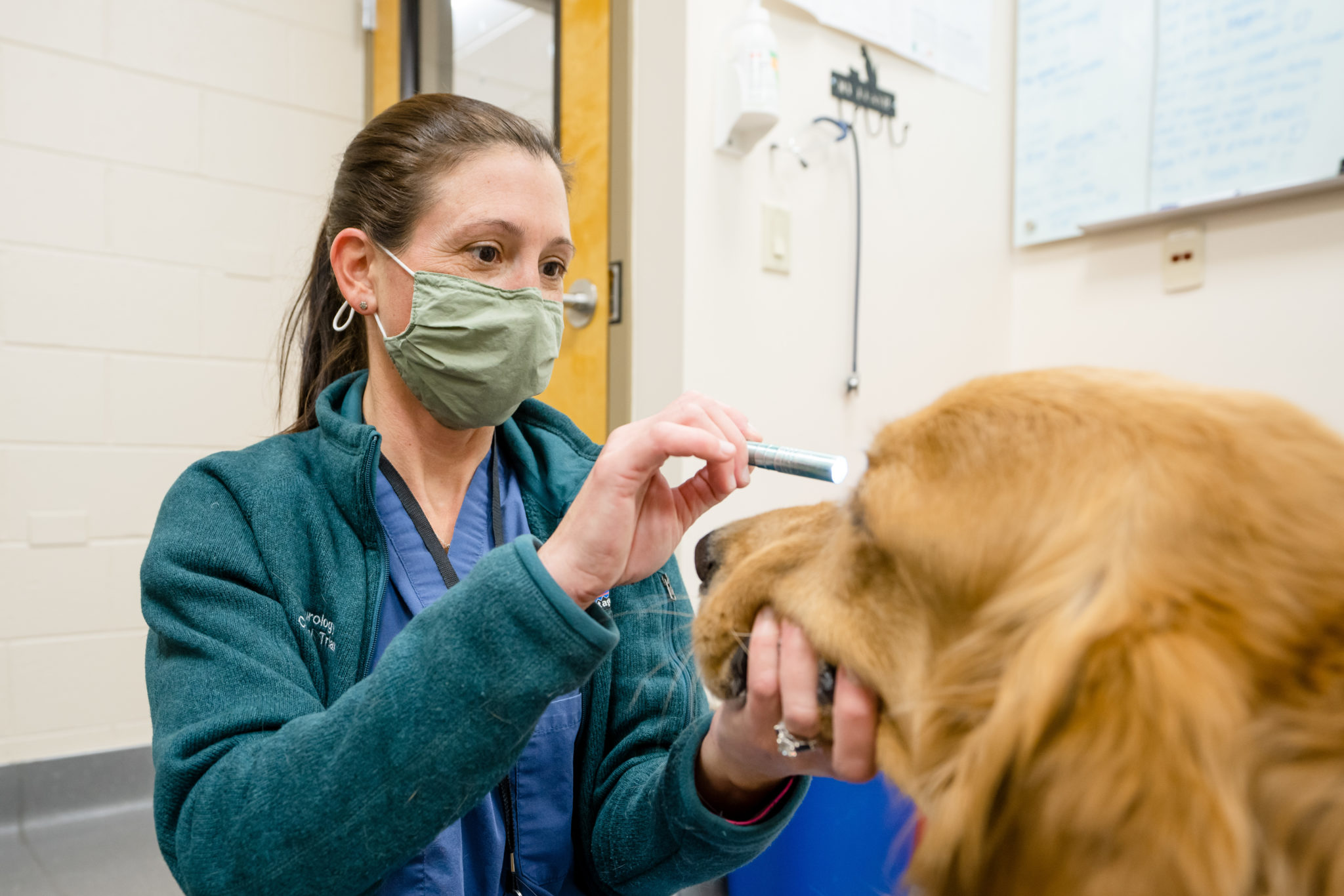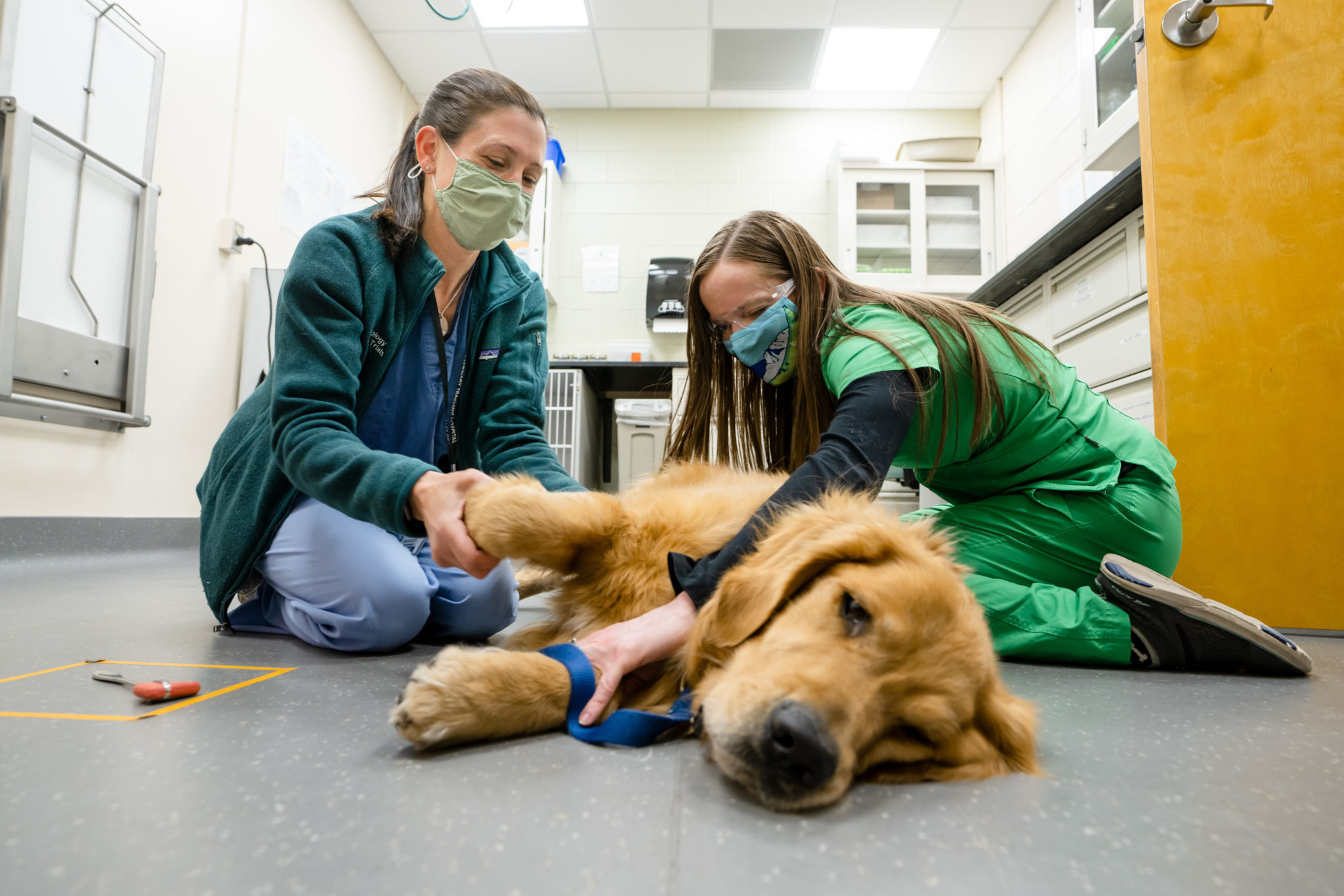
For veterinary neurologist Dr. Stephanie McGrath, testing cannabidiol, or CBD, as a potential treatment for canine epilepsy was a no-brainer.
After three years on the clinic floor at the CSU James L. Voss Veterinary Teaching Hospital, McGrath recognized a troubling trend in canine epilepsy patients. About a quarter to a third of dogs who are on medication to treat epilepsy continue to have frequent seizures or experience negative side effects from the medication they are prescribed.
“As a specialist, I see a lot of the bad cases,” McGrath said. “Some side effects are so debilitating that the owner doesn’t perceive a good quality of life for their dog, and it leads to euthanasia.”
Witnessing firsthand the impacts of epilepsy on dogs and their owners, McGrath set out to find a superior treatment for the devastating disease. When the first cannabidiol drug was approved for use in human epilepsy in 2018, she decided to explore its potential for use in veterinary medicine, too.
McGrath launched her first cannabidiol pilot study in 2016, assessing CBD for 16 dogs with epilepsy. She found that 89 percent of dogs who received CBD in the clinical trial had a reduction in the frequency of seizures. Following the success of the pilot study, McGrath launched a larger, double-blinded study in 2018. The newer study, which involves over 60 dogs with epilepsy, is scheduled to wrap up in March, when McGrath and her team will “unblind” themselves and begin to analyze the data. Currently, neither McGrath’s team nor the trial participants know which treatment they are receiving.
“We don’t have the answers yet, but so far it’s promising and we’re seeing encouraging results,” McGrath said. “But all dogs don’t get better, I can tell you that much, so why is that?”
After casting her research net wide, McGrath hopes to hone in on more specific research questions regarding CBD efficacy in future trials. She is already launching a study in February, through which she hopes to determine a dose of CBD that will reduce seizure frequency in dogs to 50% or less.
Research should be fun
McGrath’s passion for and expertise in naturally occurring disease research earned her the 2020 Zoetis Award for Veterinary Research Excellence, which fosters innovation and recognizes outstanding research effort and productivity. In recognition of the award, McGrath will give the keynote address for the 22nd annual CVMBS Research Day on Saturday, Jan. 30 via Zoom. She’ll discuss the importance of focusing on the “big-picture” goal, teamwork, and enjoying the journey.

Sparking research interest
As a resident after completing her veterinary degree, McGrath was not drawn to research – it was a passion that took time to grow.
“It’s funny, when I was a resident I was so disinterested in research,” McGrath said. “The clinical aspect of veterinary medicine was what I enjoyed.”
Following her residency, McGrath was content doing clinical work at a private practice for a year before returning to the Colorado State University Veterinary Teaching Hospital for a faculty position. It was not until she became an assistant professor that she delved into research again.
“It’s been a journey from the beginning,” McGrath said. “I recognized there was an epilepsy issue as I was seeing all these cases as a clinician, and at the same time marijuana was legalized in Colorado. It was all culminating at the same time for me.”
In contrast to her first experiences as a resident, McGrath discovered her interest in research was sparked by a personal interest in a topic, when it came “from the heart.” She pushes her own residents to create a plan for the two research projects they are required to complete during their program, even if their research interests are different than her own.
“As a mentor, I try as hard as I can to encourage my residents to keep an open mind, because I know I didn’t, and you never know where you’re going to end up,” McGrath said.
From zero research to Zoetis
After starting out with a preference for the clinical side of veterinary medicine, McGrath looks back on her career path so far with surprise and gratitude. She leads the clinical trials for the neurology service at the Veterinary Teaching Hospital, and for her continued work, earned the 2020 Zoetis Award for Veterinary Research Excellence.
“This is the last place I thought I’d end up,” McGrath said. “I wanted nothing to do with academia and now I have this excellent researcher award? I’m very honored and humbled.”
McGrath appreciates the research she gets to pursue alongside her colleagues, so much so that it often does not feel like work. Building relationships with families and their dogs and growing a close-knit team are both perks of McGrath’s quest to find a more efficacious treatment for canine epilepsy. With each clinical trial, she excitedly faces the challenge to find answers to her growing list of research questions.
“Every study partially answers one question but leads to a bunch more,” McGrath said. “At first I found that very frustrating, but now I embrace it.”
